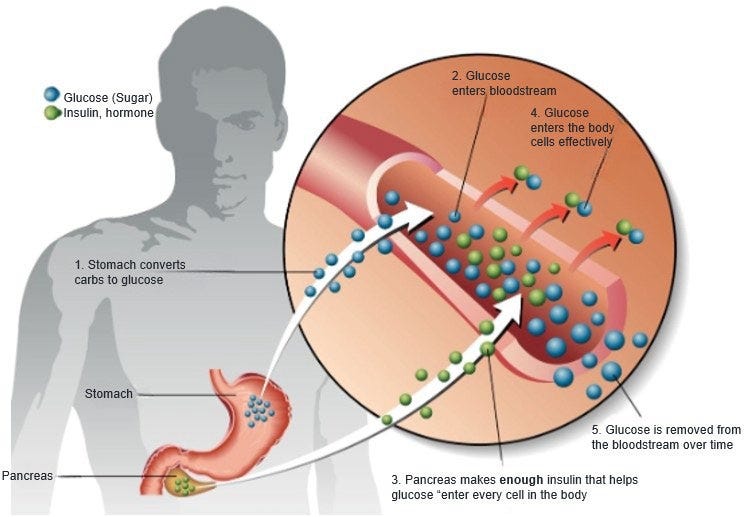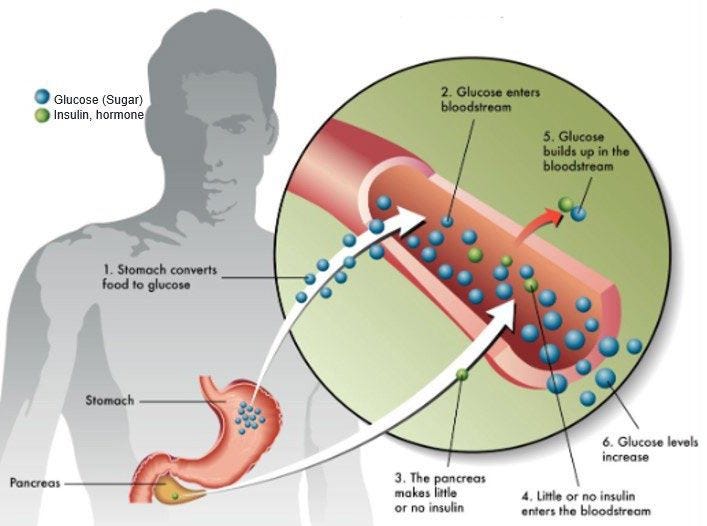WHY IS GLUCOSE
MONITORING
IMPORTANT?
Regularly monitoring your glucose levels can help you take better care of your diabetes. It helps you learn how food, activity levels, stress, medicine, and insulin affect your glucose levels.
Are Singaporeans with diabetes
doing enough to monitor
their glucose?
More than half (51%) of people with diabetes admitted they do not monitor their glucose at home due to inconvenience, while 46% didn’t think it was necessary.1
Learn more about the article
Why does glucose levels differ in a person with diabetes?
In a person without diabetes:


- Body cells gets “fuel” (blood glucose) it needs to function.
- Blood glucose levels are normal and does not pile up in the bloodstream.
In a person living with diabetes:


- Blood glucose levels become abnormal and “piles up” in the bloodstream.3
- Prolonged high sugar levels in the bloodstream can damage large and small blood vessels.4
If poorly controlled, diabetes can lead to serious complications.


2 in 3
individuals with new kidney failure
had diabetes6


1 in 2
individuals who had a heart attack
had diabetes6


2 in 5
individuals who had a stroke
had diabetes6


Half of the
disease burden
of blindness and vision
impairment is due to diabetes6


9 in 10
individuals who had a lower
limb amputation had diabetes6
Start monitoring your glucose and improve your lifestyle in various ways!
Food: In an era of information overload, continuous glucose monitoring can help you tackle the “To eat or not to eat” dilemma by monitoring changes in your glucose levels according to the changes in your meal components7 and using that information to drive your decision.
Exercise: While exercise is necessary, over-exercise or even not doing enough, can lead to counter effects on diabetes management. Continuous glucose monitoring can help you understand if the exercise routine is suitable for you by predicting an overall direction in which your glucose levels are going. Thereby alerting you if your levels are going down due to over-exercise (hypoglycaemia)7.
Medications: A regular account of your glucose levels also helps your doctor get a wide range of information to work with, while understanding if the prescribed medications are working for you. If any medication requires alterations or replacement, they need not wait for an extended period of time7.
With disorders that involve strict glucose management, there is no one solution that fits all, since no two individuals react to lifestyle interventions in the exact same way. Every individual and every physiology are unique7.
When living with diabetes, if there is one gospel truth you need to believe in, then it's your own glucose levels. So when in doubt, just #AskYourGlucose and put an end to your dilemmas.
REFERENCES:
- Khoo, B. K. (2024, November 13). Are you managing your diabetes as well as you think you are? Probably not, according to this new survey. CNA Lifestyle. https://cnalifestyle.channelnewsasia.com/wellness/diabetes-management-survey-perception-monitoring-diet-control-exercise-medication-413546
- Kash, S. (2024, November 11). 6 in 10 singaporeans with diabetes have poor glucose control, survey finds. Medical Channel Asia. https://medicalchannelasia.com/6-in-10-singaporeans-with-diabetes-have-poor-glucose-control/
- The Madison Clinic. (2024). About diabetes. The Madison Clinic | for Pediatric Diabetes at UCSF. https://madisonclinic.ucsf.edu/life-diabetes/newly-diagnosed/about-diabetes
- Cleveland Clinic. (2024). Hyperglycemia. https://my.clevelandclinic.org/health/diseases/9815-hyperglycemia-high-bloodsugar
- Global Burden of Disease Study 2017.
- MOH administrative data 2017.
- American Diabetes Association. Better blood glucose meters and more. Accessed 20 May 2023. Available at: https://diabetes.org/tools-support/devices-technology.
© 2024 Abbott. All Rights Reserved. The sensor housing, FreeStyle, Libre, and related brand marks are trademarks of Abbott. ADC-104604 v1.0






